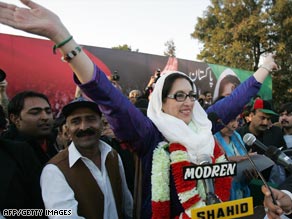By
ERIC LICHTBLAUWASHINGTON — Federal officials are bringing far fewer prosecutions as a result of fraudulent stock schemes than they did eight years ago, according to new data, raising further questions about whether the Bush administration has been too lax in policing Wall Street.
Legal and financial experts say that a loosening of enforcement measures, cutbacks in staffing at the Securities and Exchange Commission, and a shift in resources toward terrorism at the F.B.I. have combined to make the federal government something of a paper tiger in investigating securities crimes.
At a time when the financial news is being dominated by the $50 billion Ponzi scheme that Bernard L. Madoff is accused of running, federal officials are on pace this year to bring the fewest prosecutions for securities fraud since at least 1991, according to the data, compiled by a Syracuse University research group using Justice Department figures.
There were 133 prosecutions for securities fraud in the first 11 months of this fiscal year. That is down from 437 cases in 2000 and from a high of 513 cases in 2002, when Wall Street scandals from Enron to WorldCom led to a crackdown on corporate crime, the data showed.
At the S.E.C., agency investigations that led to Justice Department prosecutions for securities fraud dropped from 69 in 2000 to just 9 in 2007, a decline of 87 percent, the data showed.
Federal officials took issue with some of the data compiled by the Syracuse group and said that they had maintained a strong commitment to rooting out fraud and abuse in the stock markets. While the S.E.C. could not provide numbers of its own on criminal cases arising from its investigations, Scott Friedstad, the deputy director of enforcement at the commission, said the numbers did not reflect “the reality that I see on the ground.”
“We are as committed as ever to vigorous enforcement efforts,” he said.
But a number of investor advocates and securities lawyers who are critical of the S.E.C.’s recent performance say they will be anxiously watching the incoming Obama administration to see what steps it may take to restore the agency’s battered credibility and re-establish it as a watchdog against corporate abuse.
President-elect Barack Obama has named Mary Schapiro, head of the Financial Services Regulatory Authority, to lead the S.E.C, and he has promised an overhaul of the agency and other financial regulatory offices to provide tougher oversight.
“I think the S.E.C. has completely fallen down on the job,” said Jacob H. Zamansky, a New York lawyer who specializes in representing investors who have lost money in fraud cases. “They’re more interested in protecting Wall Street than protecting investors. The new administration has to do a complete overhaul of the S.E.C.”
The F.B.I., which frequently investigates stock fraud cases either on its own or in partnership with the S.E.C., has also had a sharp decline in the number of white-collar cases it has brought in the last several years — partly a reflection of a huge shift in staffing and resources to counterterrorism operations since the Sept. 11 attacks, officials said.
David Burnham, co-director of the Syracuse research group, which is known as the Transactional Records Access Clearinghouse, or TRAC, said the decline in stock fraud prosecutions growing out of the F.B.I. “really is no surprise. It’s a reflection of a choice that was made right after 9-11 to move investigators into terrorism, and this is the cost of that.
“Maybe it’s the correct call,” he added, “but with both the F.B.I. and the S.E.C., the federal government is really the only place that does white-collar crime on a systematic basis.”
The economic collapse of the last few months has brought intense scrutiny of the S.E.C. amid accusations that it failed to foresee and prevent the collapse of one major financial institution after another as a result of risky overinvestment in mortgage-backed securities.
“As an overheated market needed a strong referee to rein in dangerously risky behavior, the commission too often remained on the sidelines,” Arthur Levitt, who served as chairman of the S.E.C. during the Clinton administration, told the Senate Banking Committee in October.
The Madoff scandal, now under investigation by federal prosecutors in Manhattan, has ratcheted up criticism even further.
Christopher Cox, chairman of the S.E.C., ordered an internal investigation last week into what he said were the agency’s “multiple failures” to investigate credible allegations of wrongdoing by Mr. Madoff.
The S.E.C.’s own data suggests that the agency has put increasing emphasis on using non-criminal means, like civil fines and what are known as deferred prosecution agreements, in dealing with allegations of wrongdoing. The number of S.E.C. cases handled through civil or administrative remedies has grown from 503 in 2000 to 636 this year.
Critics of the S.E.C. also attribute the decline in criminal cases to shortages in staffing and resources in the agency’s investigative units, policy changes that have reduced the authority of investigators to pursue cases on their own, and a “revolving door” phenomenon that has led investigators to leave the agency for high-paying jobs in the industry that they once helped to monitor.
“It’s been awful,” Sean Coffey, a former fraud prosecutor in New York who now represents investors in securities litigation, said of the S.E.C.’s recent enforcement record. The agency has “neutered the ability of the enforcement staff to be as proactive as they could be. It’s hard to square the motto of investor advocate with the way they’ve performed the last eight years.”
Mr. Coffey said he believed the declining number of stock fraud prosecutions is partly a result of the backlash the Bush administration experienced after its aggressive pursuit of corporate crime following the Enron collapse in 2002, which led to the creation of a national task force on corporate wrongdoing.
In the last few years, he said, “the administration has been sending the message that we’re going to loosen the binds on the market to compete in the global marketplace, and they’ve pulled the throttle back on prosecutions because it wasn’t politically necessary anymore.”
Original here
 NEW YORK (Reuters) - Imagine, John Lennon makes a television commercial for charity -- 28 years after his death.
NEW YORK (Reuters) - Imagine, John Lennon makes a television commercial for charity -- 28 years after his death. 












 Matt Asay is general manager of the Americas and vice president of business development at Alfresco, and has nearly a decade of operational experience with commercial open source and regularly speaks and publishes on open-source business strategy. He is a member of the
Matt Asay is general manager of the Americas and vice president of business development at Alfresco, and has nearly a decade of operational experience with commercial open source and regularly speaks and publishes on open-source business strategy. He is a member of the 




 Mike Connell
Mike Connell